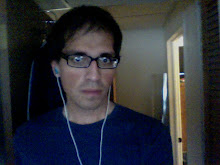Now, I don't agree with Miller's main argument, but I do think she's right in the fact that too many aspiring writers don't think they actually need to bother reading anything. My main argument: she totally went the wrong way of approaching this issue. The following is a response I posted in the comments section. It's narcissistic, sure, to post it twice.
One: in reply to an earlier poster, Miller's "Magician's Book" is very much not an anti-Chronicles of Narnia book. It's a book about how the things you read generally shift in their meaning and importance as you grow older. She loved them, then felt betrayed, then came to appreciate them for something that she never realized were a part of the story.
Two: Generally speaking, Miller's recommendations of books are frequently spot-on. Her interests are broad and its appreciable that she's been one of the many professional proponents of the not labeling genre. (Among her book club choices for this year: "The Passage" and "Freedom." One of her best reviews: Gary Shytengart's "Super Sad True Love Story.") She's less prejudiced and more open toward a story than Michiko Kakutani and B. R. Myers and James Wood, who escape general ire because they consider themselves so high brow.
Three: In her article, Miller explicitly stated that she has no desire to be a novelist. This criticism launched against her must have come from the same place the birthers pull their theories.
Four: O.K., she has an argument, and it's not untrue that a great deal of people who are working on a novel don't bother to actually read anything in their free time (or at any time at all) apart from social mediated status updates, but in this piece in particular she does not deliver it well at all, and it's probably unfair to use National Novel Writing Month as her launchpad. She kind of goes all over the place and makes these oft-mentioned negative generalizations.
I was an English major; I'm going to be an English major again, and when I went to school I was all stoked that I would be surrounded by people who read a lot of books and had all these ideas and recommendations and everything. Turns out, I was the one who read all the books and had all the recommendations, all these other English majors were either aspiring teachers (which is an even larger problem, considering more than a few of them did not believe Gregor Samson turned into a vermin, but felt like one for the whole narrative, and I could go on) or just thought they would receive an easy degree. We were given DeLillo's "Libra" -- a novel that demands patience and rereading -- and hardly anyone liked it because it wasn't immediate and RIGHT THERE. When DFW died, hardly anyone in any of my classes seemed to care. Pynchon wasn't a recognized name. Miller's pieces often helped steer me in some direction, toward something in a line of inspired reading.
I think Miller's criticism is mis-directed in her article, and you can feel her trying to assemble the disjointed, disproportionate pieces together to form her cohesive whole (which, of course, leaves many gaping holes that we're having so much fun pointing out). National Novel Writing Month and its participants aren't deserving of her ire. Still: she's among the strongest critics writing right now (especially w/r/t those on the Internet) and any activist of reading, even with the occasional misstep, as this one so very very evidently is, is someone still worth listening too.
ALSO: a few months ago, when The Guardian put out a list of a bunch of writers given writerly advice, Miller contributed a list of elements that readers enjoy. You'd think it'd be self-evident, some of the things she points out, but there are still plenty of aspiring writers who claim they don't have the time to read but still think they'll produce something great. Read that instead of this one. http://www.salon.com/books/laura_miller/2010/02/23/readers_advice_to_writers

No comments:
Post a Comment